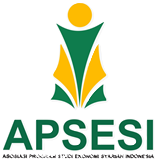Peran Wakaf Digital dalam Mencapai Tujuan Pembangunan Berkelanjutan (SDG’s)
DOI:
https://doi.org/10.53491/oikonomika.v5i1.1128Kata Kunci:
Wakaf Digital, SDG’s, Peran Wakaf, DigitalisasiAbstrak
Wakaf sebagai salah satu instrumen keuangan syariah memiliki peran strategis dalam memajukan kesejahteraan masyarakat dan berkontribusi pada pembangunan berkelanjutan. Hal tersebut memiliki relevansi yang kuat dengan tujuan (SDG’s). Wakaf berbasis digital merupakan penghimpunan dan pengelolaan wakaf dengan memanfaatkan teknologi dan platform digital sebagai upaya mempercepat transformasi wakaf produktif sehingga dapat lebih efektif, efisien, dan transparan. Melalui pendekatan kualitatif deskriptif dengan data sekunder dari analisis studi literatur, wakaf memiliki peran penting dalam mencapai pembangunan berkelanjutan melalui berbagai cara. Wakaf sebagai sumbangan permanen untuk kesejahteraan sosial dan keagamaan, mendukung pendidikan, meningkatkan akses kesehatan, berkontribusi pada pemberdayaan ekonomi melalui wakaf produktif, dan wakaf dapat mendanai proyek-proyek yang mendukung pelestarian lingkungan. Implementasi wakaf digital melibatkan pengembangan platform digital yang memungkinkan donatur untuk melakukan wakaf secara online melalui situs web atau aplikasi mobile. Platform tersebut memfasilitasi proses donasi, pelacakan, dan pelaporan penggunaan dana wakaf. Contoh penerapan teknologi ini dapat dilihat pada inisiatif seperti Waqf Chain, yang menggunakan blockchain untuk mengelola aset wakaf. Smart contracts atau kontrak pintar digunakan untuk mengeksekusi perjanjian wakaf secara otomatis. Platform crowdfunding juga digunakan untuk mengumpulkan dana wakaf dari masyarakat luas, memungkinkan partisipasi dari berbagai lapisan masyarakat. Dompet digital dan metode pembayaran elektronik diintegrasikan untuk mempermudah donatur dalam memberikan kontribusi wakaf. Namun, banyak masyarakat yang masih kurang memahami dan belum teredukasi tentang konsep wakaf digital serta manfaat yang bisa diperoleh darinya, serta cenderung skeptis terhadap penggunaan teknologi baru dalam pengelolaan wakaf. Oleh karena itu, edukasi yang intensif dan berkelanjutan diperlukan untuk meningkatkan kesadaran dan partisipasi masyarakat dalam wakaf digital.
Unduhan
Referensi
Abdul Aziz, A. A. (2020). The Role of Waqf in Achieving Sustainable Development Goals (SDGs). International Journal of Zakat, 5(2), 41-52.
Amaliah, S. N., & Syamsul, E. mulya. (2023). RUKUN WAKAF DALAM KEABSAHAN WAKAF MENURUT UU NO 41 TAHUN 2004 TENTANG WAKAF. Al-Akhbar: Jurnal Ilmiah Keislaman, 8(2), 64–70. https://ejournal.unma.ac.id/index.php/aa/article/view/4305
Hamid, A., et al. (2019). The Potential of Waqf to Support Sustainable Development Goals (SDGs): An Analytical Study. Journal of Economic Cooperation and Development, 40(1), 123-144.
Kahf, M. (1998). Financing the development of awqaf property. Islamic Research and Training Institute, Islamic Development Bank.
Lahsasna, A. (2020). Digitalizing Waqf and Its Potential Impact on Economic Development: Case of Malaysia. Journal of Islamic Accounting and Business Research, 11(1), 31-45.
McAfee, A., & Brynjolfsson, E. (2017). Machine, platform, crowd: Harnessing our digital future. W.W. Norton & Company.
Maisyarah, A., & Hadi, K. (2024). Implementasi Model Pengelolaan Wakaf Berbasis Digital dalam Meningkatkan Tujuan Pembangunan Berkelanjutan (SDG’S). Jurnal Ilmiah Ekonomi Islam, Vol. 10 No. 1, 887-889.
Nuntufa, N. (2021). Relevansi Wakaf Dengan Tujuan Pembangunan Berkelanjutan (SDGs) : Dalam Konteks Maqashid Syariah . Jurnal Pendidikan Dan Konseling (JPDK), 3(1), 137–152. https://doi.org/10.31004/jpdk.v3i1.12301
Othman, A., & Noor, A. H. M. (2019). The Impact of Financial Technology (FinTech) on Waqf. International Journal of Management and Applied Research, 6(2), 63-75.
Rahmah, N. F. (2021). Manajemen Pengembangan Wakaf Era Digital Dalam Mengoptimalkan Potensi Wakaf. Al-Awqaf: Jurnal Wakaf Dan Ekonomi Islam, 14(2), 139-154. https://doi.org/10.47411/al-awqaf.Vol14Iss2.153
Rahmawati., Thamrin, H., Guntoro, S., & Kurnialis, S. (2021). TRANSFORMASI DIGITAL WAKAF BWIDALAM MENGHIMPUN WAKAF DI ERA DIGITALISASI. Jurnal Tabarru’ : Islamic Banking and Finance, Vol. 4 No. 2, 532-540. https://doi.org/10.25299/jtb.2021.vol4(2).8375
Sarajlija, A., & Ibrahim, H. (2021). Blockchain Technology in Islamic Social Finance: A Review of Potentials and Challenges. International Journal of Islamic Economics and Finance (IJIEF), 4(2), 45-60.
Sup, D. F. A. (2021). Relevansi konsep hutan wakaf dengan konsep wakaf di dalam Islam. Islamic Economics Journal, 7(1), 56-63. https://doi.org/10.21111/iej.v7i1.6430
Usmani, M. T. (2018). An Introduction to Islamic Finance: Theory and Practice. The Hague: Kluwer Law International.
##submission.downloads##
Diterbitkan
Cara Mengutip
Terbitan
Bagian
Lisensi
Hak Cipta (c) 2024 Sevina Putri Dinanti, Nasya Silmi Auna Nida Ulhusna, Nurul Azizah, Zidan Adriansyah

Artikel ini berlisensiCreative Commons Attribution-ShareAlike 4.0 International License.





